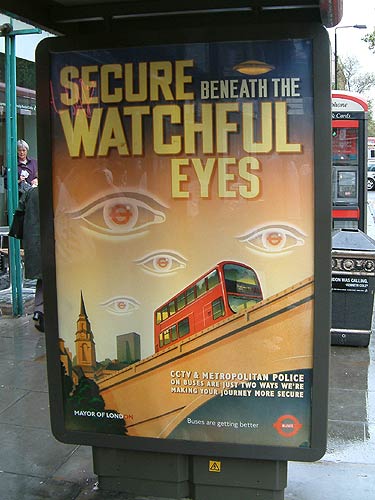Cameras are fast becoming commonplace fixtures on our streets, our public transport and even in our workplaces. Some argue that these cameras are a necessary and effective crime reduction tool. But are they actually as effective as people claim? Or do they infringe on our privacy with no real gain for society?

Debaters gathered at an IQ2 public debate to argue for and against the proposition “Better more cameras than crime”. The third speaker for the negative was renowned barrister and human rights activist Julian Burnside and you can watch his excellent argument below.
Crime and CCTV in Australia: Understanding the Relationship
The most indepth Australian academic study of CCTV camera effectiveness was done a few years ago in Queensland. You can download the whole PDF report “Crime and CCTV in Australia: Understanding the Relationship”. An excerpt follows:
Over the past two decades, there has been a proliferation of Closed-Circuit Television (CCTV) schemes in most states throughout Australia (Wilson and Sutton, 2003). Unfortunately, CCTV has frequently been implemented without a clear understanding of the goals that may be accomplished through its use or indeed the circumstances under which CCTV is most effective.
The issue of security in public places and on public transport raises wide-ranging concerns within a broad spectrum of organisations responsible for crime prevention strategies. The enormous growth in the use of CCTV both nationally and internationally reflects these concerns. These are compounded by the fact that risks associated with assault, sexual assault and property crime in all Australian States and Territories remains considerable (Weatherburn, 2004), despite significant investment in crime deterrent technologies such as CCTV.
…
The increased use of CCTV has raised a series of associated socio-legal concerns. These include the overall financial burden of CCTV, whether CCTV assists with crime detection, the impact of CCTV on marginalised sections of the community, whether CCTV invades the privacy of individuals in public spaces and on public transport and its effectiveness as a crime prevention deterrent.The perceived success of CCTV in relation to controlling crime in Australia is almost totally anecdotal (Goodwin, 2002; Sutherland Shire Council, 2001, 2003; Welsh and Farrington, 2002). While further CCTV implementation continues to occur and state and federal agencies consider additional crime detection and minimisation strategies (Wilson, 2003), there is a critical need to undertake a comprehensive review and research the impact of CCTV on security of public spaces and public transport.
…
This research questions the general assumption “that surveillance cameras are not only controlled and monitored constantly, but also operated effectively and efficiently” (Smith, 2004, p. 376). It is unrealistic to suggest the installation of cameras will have a major impact on crime rates unless “used as part of a strategy to tackle specific offences” (Gill and Hemming, 2006, p. 36). From our research it appears CCTV is effective at detecting violent crime and/or may result in increased reporting as opposed to preventing any type of crime.
ABC TV Foreign Correspondent – UK Surveillance State
In 2007 ABC TV’s then European Correspondent Rafael Epstein reported on his daily bike ride from his home in North London to the ABC office near Regents Park. His 10 kilometre journey was captured by dozens of cameras, as were millions of other Londoners.
Epstein wanted to find out why Britons have become the most watched people in the world, with over four million surveillance cameras, one for every 12 people. By one estimate the average Londoner is caught on camera 300 times a day. The United Kingdom has become a society obsessed with security.
Yet even having 20 per cent of the world’s CCTV (Closed Circuit Television) cameras doesn’t seem to be enough. Authorities are now installing cameras that not only issue orders, but attempt to predict criminal behaviour.
Epstein tests out some of them, with surprising results.
Transcript begins:
“Hello and welcome to Foreign Correspondent. I’m Rafael Epstein. I’m standing outside my home in North London. Now this city is a remarkable place … but one of the first things I noticed when I came here was the vast number of security cameras”
“Most people here seem to think that closed circuit television cameras (CCTV) are a fantastic idea .. but are they? My daily ride to work has left me wondering why is it that Britain has become the most watched nation on Earth”
“My ride to work begins with a camera I can see from right outside our kitchen window ……..”
Watch the story for yourself (16min 39 sec in length) below by clicking on the play button:
If you can’t see the video player than you should open this URL in Windows Media Player: http://www.abc.net.au/foreign/content/2007/surveillance_state_200k.asx
What do you think about CCTV cameras recording everything the public does?
Do they make you feel safe or watched by big brother?
Are they a waste of money going into the pockets of security camera makers or a way of making people feel safer?

Leave a Reply